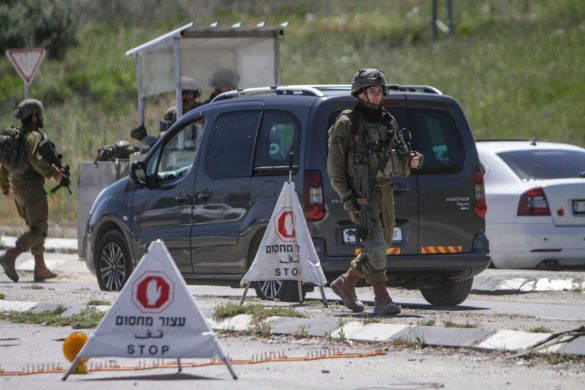Oxfam urges lifting of barriers to olive production
LONDON, 17 October 2010 (IRIN): The first day of the Palestinian olive harvest officially began on 15 October, and Rani Ali and his family – like hundreds of others – were out among their olive trees, starting to bring in what looks like being a good harvest.
But Rani and his family have a problem.
Although they are not among those Palestinians who have lost their land completely to settlement building or to make way for the Israeli government’s barrier wall, their plot of 200 trees is very close to the edge of the Israeli settlement of Qaddomim, and they need permission to get onto their land.
– Yesterday and before yesterday we tried to harvest, but the army came and said, “Go from here because you don’t have permission”, he told IRIN in a telephone interview
They were only able to harvest on 15 October because their village, Kufr Qaddoum, has one of 30 agricultural cooperatives benefiting from an EU funded project, implemented by Oxfam GB. With a bit of outside intervention, permission was finally granted and 40 volunteers arrived to help pick the olives as quickly as possible.
Without the extra help, said Rani, it would take the four workers in his family around a month to harvest their 200 trees. With permits often being withheld until November, and then only granted for three days at a time, that would make things very difficult.
And if they harvested late much of the fruit would be spoiled and they would get a lower price for their oil.
An Israeli Defence Force civil administration spokesman, quoted by The Jerusalem Post on 15 October, said the authorities required a formal request from landowners for the “the entrance of Palestinians to the security fence area for agricultural purposes”, which needed time to be processed.
The political situation in the occupied Palestinian territories affects every aspect of production for Palestinian olive farmers like Rani – their ability to care for their trees, when and how they can harvest, who they can sell their oil to, and the prices they get for it.
A study published by Oxfam to coincide with the start of this year’s harvest details some of the problems.
At the most extreme this can be the destruction of the trees themselves, either by the Israeli government to make way for construction, or by hostile settlers in the area.
The report quotes the UN as saying that thousands of olive trees had been damaged in what it calls “settler-related incidents” in the first six months of this year, without the authorities taking anyone to court.
Then there are the problems of selling the olive oil once it is made. Checkpoints, road closures and demands for permits make it more difficult and more expensive to get goods to market.
Læs videre på http://www.irinnews.org/Report.aspx?ReportID=90795














